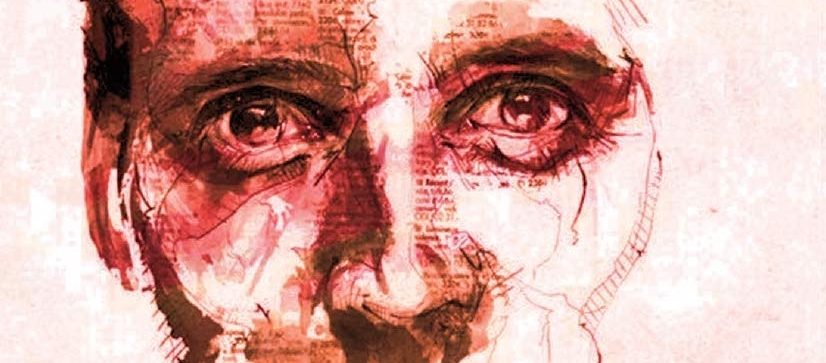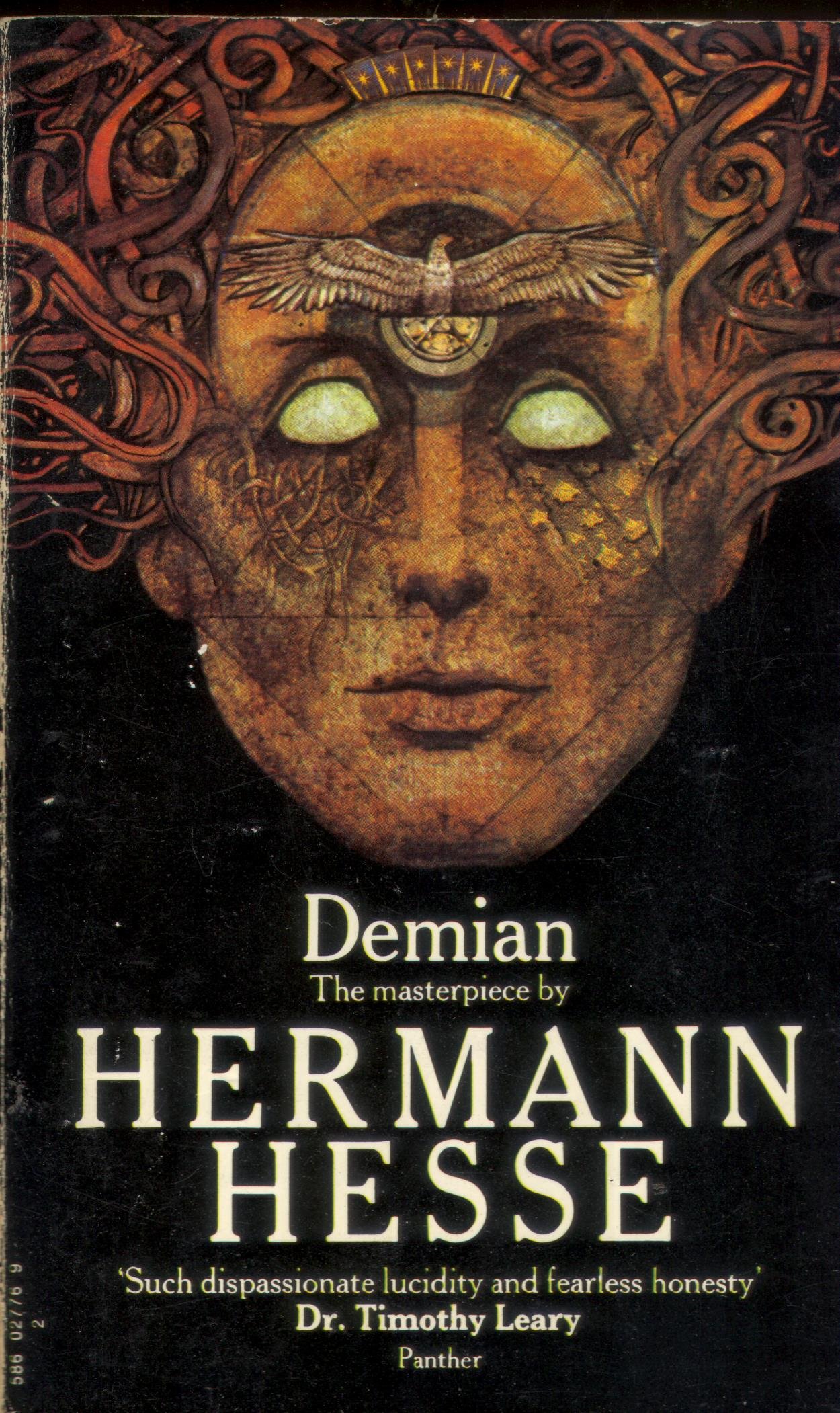

“I have no right to call myself one who knows. I was one who seeks, and I still am, but I no longer seek in the stars or in books; I’m beginning to hear the teachings of my blood pulsing within me. My story isn’t pleasant, it’s not sweet and harmonious like the invented stories; it tastes of folly and bewilderment, of madness and dream, like the life of all people who no longer want to lie to themselves.”
Demian is Hermann Hesse’s coming-of-age tale of a boy who struggles to become himself throughout his adolescence, battling with natural urges, religion, and fate. Like Siddhartha, it is a fictional story that doubles as a kind of spiritual self-help book. It can be frustrating to parse the storytelling from the lessons the author wishes to impart and the experiences unique to his life that the story works through.
Emil Sinclair belongs to two worlds: the world of light and the world of illusion. Aided by a mystic classmate named Max Demian who moves in and out of Emil’s life throughout the narrative, he is able to fight back against the superficial world, embracing the spiritual truths of the world of light and becoming himself. Throughout the book, Hesse ruminates on the meaning of life and the different strands of religious thought. He is especially interested in uncovering a version of god that contains the devil, reasoning that if the devil is opposed to god, then there must be an analogous religion dedicated to the devil. Since this is not the case, then the true god must have a dualistic nature, encompassing both good and evil because they are interdependent. This allows him to accept the evil desires within him as natural. He is careful to note that this does not mean that one can simply murder another person on a whim, but that desires that develop within us that seem evil may be there for a purpose. This new god that the narrator discovers with another classmate is called Abraxas.
“I can see that your thoughts are deeper than you yourself are able to express. But since this is so, you know, don’t you, that you’ve never lived what you are thinking and that is not good. Only the ideas that we actually live are of any value.”
Sinclair moves from light to darkness and back again. At times he feels that everything is right and aligned, but at other times he spends years hampered by spells of darkness. Demian offers him several interesting interpretations of biblical passages, including the Mark of Cain, which appears throughout the novel as a means of these free-thinkers identifying one another.
Though it is not plainly said, there are insinuations that Sinclair suffers from a sexual habit, and that only when he begins routinely painting pictures of a girl that he sometimes sees from afar that he is able to overcome it. He describes his attraction to her “boyish figure” and “boyishness in her face,” which foreshadows that the painting ends up not being the girl, but in fact Demian. But then he also thinks that it maybe looks like himself. He then begins dreaming of a different female figure that reminds him of Demian but is not Demian.
The sexually confused young man is thrown through another loop when he meets Demian’s mother, who turns out to be the woman from his dreams. Because they both bear the Mark of Cain, she recognizes him immediately. It’s not explicit, but it gets pretty weird, though Hesse is fairly adept at moving things along with pleasant sounding prose. Sinclair feels as if intimately knowing this woman is the sole purpose of his being, though it is odd that instead of Demian his affections are toward a woman who is extremely like Demian except female.
“One never reaches home,” she said. “But where paths that have affinity for each other intersect the whole world looks like home, for a time.”
Toward the end, the usually unshakeable Demian confesses that a great change is coming, and that he will be called to the front lines of the war effort. The world wants to renew itself,” he says. “There’s a smell of death in the air. Nothing can be born without first dying.” Sinclair joins as well, and there is an interesting scene of an earth goddess wreaking havoc on the battlefield and shooting stars from her head. Sinclair lays wounded near another soldier, and discovers that it is Demian. The two kiss, but when Sinclair awakes, he realizes it is just a random soldier.
The story seems to revolve around three main things: discovering exactly what we are meant to be as individuals, the reshaping of the religion that Hesse grew up with, and supressing the homosexual urges that the narrator feels toward Demian.
“There was only one thing I could not do: wrest the dark secret goal from myself and keep it before me as others did who knew exactly what they wanted to be–professors, lawyers, doctors, artists, however long this would take them and whatever difficulties and advantages this decision would bear in its wake. This I could not do. Perhaps I would become something similar, but how was I to know? Perhaps I would have to continue my search for years on end and would not become anything, and would not reach a goal. Perhaps I would reach this goal but it would turn out to be an evil, dangerous, horrible one?”
I related to the self-realization aspect of the novel because I am also unsure of what my true calling is, or if I even have one. I work to provide for my family and to fund my personal endeavors that can’t be done as a career (or at least, attempting to do so would be risky).
I’ve read Demian before, and was much more taken by it then than I was this time, where the flaws were easier to see. I wasn’t caught up by Hesse’s storytelling ability to the same degree and so was able to find things to nitpick. The belabored discussions of Abraxas and the demonization of sexual urges are a bit tiresome; but the imploration to accept your true self (not that you should do whatever comes to mind, but to recognize your tendencies instead of denying that they exist) is mostly sound.
Demian might be beneficial for angsty young people who are unimpressed by our modern culture that denies the existence of spiritual things. It can provide hope to those who know they are somehow different, but can’t articulate exactly why or how. It doesn’t answer your questions, but says it’s okay to not know the answers just yet. I have conflicted feelings on the novel, with different portions mesmerizing me and others turning me off or raising my hackles. Hesse definitely had a very poetic style of writing, and it’s easy to get caught up in it; but I don’t think that his exploration here ever arrives at any kind of truth, as enchanting as the telling of the tale is. That’s not to say that there is a problem with that, but the book’s reputation suggests that there is real truth within its pages.